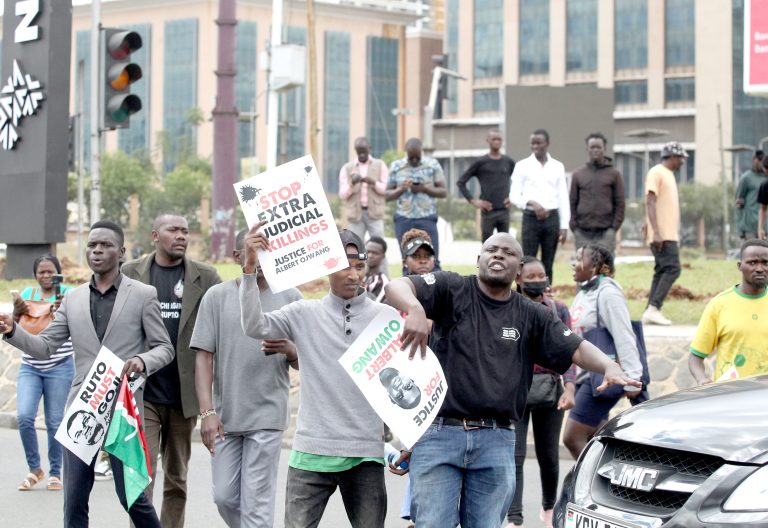Gen-Z must mobilise in Ojwang’s name by calling for accountability
By Teddy Odira, June 12, 2025Under the harsh glare of a bulb in a Kenyan police cell, Albert Omondi Ojwang took his last breath. When he was taken to Mbagathi Hospital on June 8, 2025, the 31-year-old teacher and online commentator came in a state characterised by bruising and fractures.
Ojwang picked up two days earlier in Homa Bay for allegedly tweeting a remark about a senior officer, arrived in Nairobi, where his captors claimed he had hit his head against a cell wall.
But having lived in a country where such incidents are not rare, Kenyans know that this is a clear case of police brutality.
Back in Kabondo Kasipul, his family feels the depth of grief that seems almost palpable.
Albert’s father, Meshack Opiyo, cries out his pain as he thinks about the dreams of his only son, a Pwani University graduate, destined to lift an enormous extended family.
By Monday morning, the streets of Nairobi resounded with young voices crying out for “Justice for Albert!” They had their own scars, memories of friends brutalised at protests, classmates who’d vanished on ordinary stops.
The atmosphere on X is a mixture of sorrow, outrage, and implacable optimism.
Ex-Prime Minister Raila Odinga denounced Ojwang’s murder as one of a horrifying, long list of young Kenyans dying at police hands.
His powerful words rang out in the ears, “These are senseless killings, with impunity as the only witness.” Shortly afterwards, the Independent Policing Oversight Authority (IPOA) announced an investigation and suspended the officers who were on the scene.
But to much of the population, such actions are insufficient and belated.
Human rights monitors counted 159 extrajudicial killings or disappearances last year, 104 at the hands of police bullets or beatings, a 24 per cent increase over 2023. Enforced disappearances surged by 450 per cent.
Missing Voices, a coalition, discovered that three-quarters of those killed were aged 18 to 34, their lives cut off in their prime.
And as teargas and protests made headlines, prosecutions lagged behind, the Law Society of Kenya reports just six police abuse cases tried throughout the nation in the past year.
This blatant injustice has triggered a loud call for reform. IPOA chief Ahmed Issack Hassan vows impartial, influence-free investigations.
Civil society leaders demand greater civilian oversight and legislative reform to rein in unconstrained power. Activists speak of nothing less than a national reckoning.
Ojwang was not only a victim; he became a symbol of a generation’s quest for respect.
To Gen Z: this is our moment. Stay informed, stay determined, and never let the machinery of power silence our voice. Mobilise in Albert’s name by calling for accountability, influencing legislative action, and steadfastly protecting human rights. Kenya’s future relies on its people’s commitment to remain vigilant and active.
The writer is a Lawyer and human rights Advocate.
More Articles

